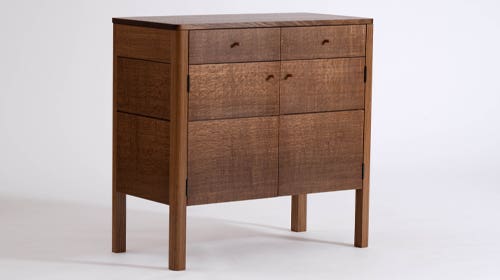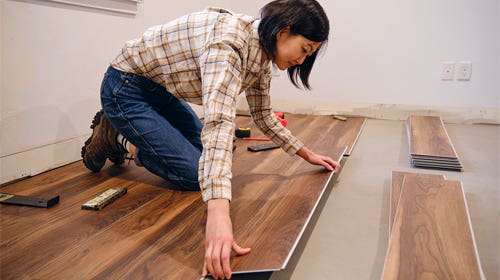Recession buster: Tips for weathering the storm
In this tough economic time, most small shops are taking unusual, if not unprecedented, measures to help survive in a difficult business environment. Woodshop News contacted the owners of several…
In this tough economic time, most small shops are taking unusual, if not unprecedented, measures to help survive in a difficult business environment. Woodshop News contacted the owners of several small cabinet and furniture shops that the magazine has recently profiled to find out what measures they are taking to weather the current economic crisis.
Here are a few of their suggestions, in no particular order of significance, and with no promises of success:
1. Take on jobs you normally would have passed on during better economic times. If you run a small custom shop and a production-type job is out there, grab it. The work may represent paying the bills for a few months.
2. Conduct a mass mailing to all of the clients you have worked for in the last few years. Consider a postcard with a photo of a recent project that will remind them you’re still around and that shows the high quality of work you perform.
3. If you have been thinking about purchasing a new piece of machinery and are fortunate enough to have the equity to do so, now is a great time to buy. Major woodworking machinery companies are offering a variety of programs that include huge promotions and sales, rebates and free shipping.
4. Renew acquaintances with interior designers, decorators and contractors. For some, this may be a bit awkward. But if one job comes to fruition, then the effort is worthwhile.
5. Follow through on any trends you may hear about. Two cabinet shops mentioned that entertainment centers for flat-screen televisions are once again popular because the cost of large TVs has dropped dramatically. Check it out.
6. Keep a low overhead, especially with materials that, when accumulated, can quickly become costly. At this time of the year — tax time — there’s no advantage to having a sizeable inventory of unused items.
7. Reconsider the potential benefits of outsourcing, particularly for some cabinet-shop applications such as the manufacturing of doors, drawers and wood components.
8. Think about participating in any local craft shows, furniture shows, home shows or any type of event where the buying public can see your product.
9. On a temporary basis, consider lowering your pricing. If you are involved in bidding on projects, determine if placing bids 5 to 10 percent less than you normally would to price a job is practical. The difference just may land you the job.
10. Cold calling. Yes, we saved the best for last. You know what it is. You hate it. Get out the phone book and just do it.
— Brian Caldwell







